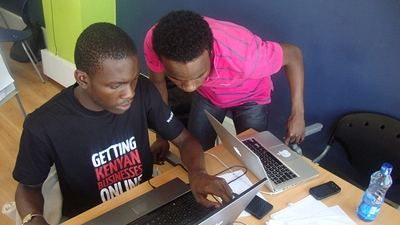The global revolution in low-cost information and communication technologies can help address some of the developing world’s oldest challenges in water and sanitation. This is one of the conclusions stemming from the first Water Hackathon in October 2011. The lessons from this event were released in a new report this week.
With the number of mobile subscriptions exceeding 5 billion, more people today have access to a mobile phone than to a toilet. Convergence of widespread mobile phone ownership with new mobile services offers new platforms for reach, transparency, and participation in achieving water security.
The Water Hackathon was a first-of-its-kind gathering of software developers in 10 cities around the world who competed to build software solutions to water sector challenges defined by governments, utilities, civil society groups, World Bank experts, and directly by citizens.
The Hackathon, which took place simultaneously in Bangalore, Lagos, Lima, London, Nairobi, and Washington, D.C., among other locations, drew over 500 technology specialists. Since October, over 60 prototype solutions have been built in response to the 113 water sector challenges defined.
What is a hackathon?
A hack-a-thon event (also known as an apps challenge, hack day, hackfest, or codefest) is an intensive marathon competition of brainstorming and computer programming that draws together the talent and creativity of software developers and designers.
For example, an innovative new mobile-to-web user feedback system for the Kenyan water and sanitation sector will help citizens to hold utilities accountable for the quality of their water and sanitation services. It will build a system for consumers to submit complaints to a central database via basic text-messages and other technology. Consumers will receive a unique, traceable reference number to check the status of their complaints, which will be automatically routed to the respective water utility companies. Issues that remain unresolved beyond a specified time-period will be automatically escalated for the attention of the national regulator.
“Citizens in Kenya and other parts of Africa have often lacked the experience and robust tools necessary to engage and exact accountability in the water and sanitation sector,” said Rosemary Rop, Water and Sanitation Specialist with the World Bank’s Water and Sanitation Program. “This application will mean considerable gains in efficiency, consumers will be empowered to submit and track complaints on their phones, water service providers will have one central, standardized portal to review and resolve all complaints, and the improved and automatically sorted consumer information will help the regulator to work efficiently.”


